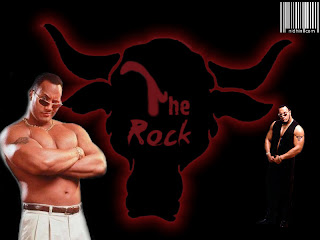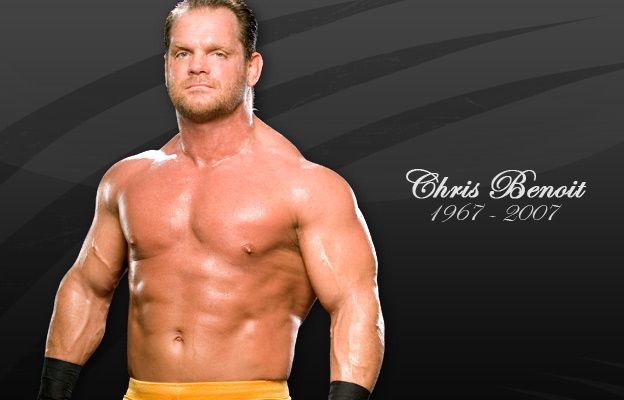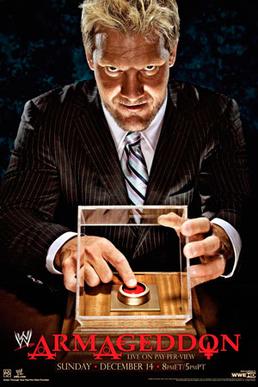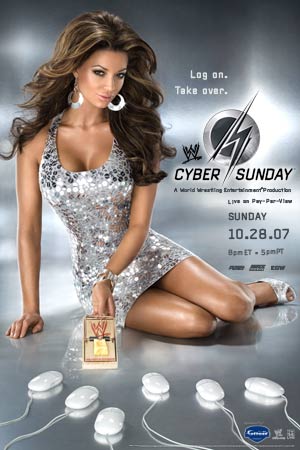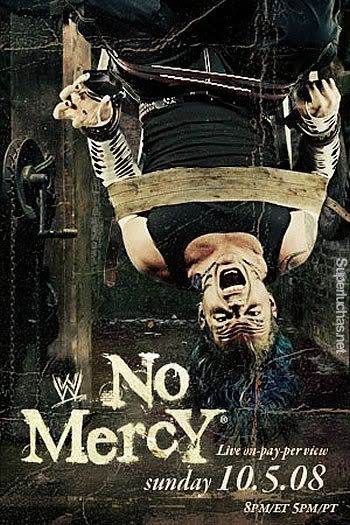WWE Wrestling History
World Wrestling Entertainment, Inc. (WWE) is a publicly traded, privately controlled integrated media (focusing in television, internet, and live events), sports, and entertainment company dealing primarily in the professional wrestling industry, with major revenue sources also coming from movies, music, product licensing, and direct product sales. Vince McMahon is the majority owner and Chairman of the company and his wife Linda McMahon holds the position of Chief Executive Officer (CEO). Together with their children, Executive Vice President of Global Media Shane McMahon and Senior Vice President of Creative Writing Stephanie McMahon-Levesque, the McMahons hold approximately 70% of WWE's economic interest and 96% of all voting power in the company. The company's global headquarters are located at 1241 East Main Street in Stamford, Connecticut, with international offices in Los Angeles, New York City, London, and Toronto. The company was previously known as Titan Sports, Inc. before changing to World Wrestling Federation Entertainment, Inc., and most recently becoming World Wrestling Entertainment, Inc.
WWE's business focus is on professional wrestling. It is currently the largest professional wrestling promotion in the world, and holds an extensive library of videos representing a significant portion of the visual history of professional wrestling. The promotion previously existed as the Capitol Wrestling Corporation, which promoted under the banner of the World Wide Wrestling Federation (WWWF), and later the World Wrestling Federation (WWF). WWE promotes under three brands; RAW, SmackDown! and ECW. WWE is also home to three of the eight world heavyweight championships recognized by Pro Wrestling Illustrated.
WWE's revenue in fiscal 2006 (from May 2005 to April 2006) was approximately $400 million (US), with a net profit of approximately $47 million. As of August 2006, the company's market capitalization is over $1 billion (US). Its stock is traded on the NYSE as WWE.
History
The beginning/Capitol Wrestling
Roderick James "Jess" McMahon was a boxing promoter whose achievements included co-promoting a bout in 1915 between Jess Willard and Jack Johnson. In 1926, while working with Tex Rickard (who actually despised wrestling to such a degree he prevented wrestling events from being held at Madison Square Garden between 1939 and 1948), he started promoting boxing in Madison Square Garden in New York. The first match during their partnership was a light-heavyweight championship match between Jack Delaney and Paul Berlenbach.
Around the same time, professional wrestler Joseph Raymond "Toots" Mondt created a new style of professional wrestling that he called Slam Bang Western Style Wrestling to make the sport more appealing to spectators. He then formed a promotion with wrestling champion Ed Lewis and his manager Billy Sandow. They persuaded many wrestlers to sign contracts with their Gold Dust Trio. After much success, a disagreement over power caused the trio to dissolve and, with it, their promotion. Mondt formed partnerships with several other promoters, including Jack Curley in New York City. When Curley was dying, Mondt moved to take over New York wrestling with the aid of several bookers, one of whom was Jess McMahon.
Together, Roderick McMahon and Raymond Mondt created the Capitol Wrestling Corporation (CWC). The CWC joined the National Wrestling Alliance in 1953. Also in that year, Ray Fabiani, one of Mondt's associates, brought in Vincent J. McMahon to replace his father Jess in the promotion. McMahon and Mondt were a successful combination, and within a short time, they controlled approximately 70% of the NWA's booking, largely due to their dominance in the heavily populated Northeast region. Mondt taught McMahon about booking and how to work in the wrestling business.
World Wide Wrestling Federation
The NWA recognized an undisputed NWA World Heavyweight Champion that went from wrestling company to wrestling company in the alliance and defended the belt around the world. In 1963, the champion was "Nature Boy" Buddy Rogers.
The rest of the NWA was unhappy with Mondt because he rarely allowed Rogers to wrestle outside of the Northeast. Mondt and McMahon wanted Rogers to keep the NWA World Championship, but Rogers was unwilling to sacrifice his $25,000 deposit on the belt (title holders at the time had to pay a deposit to insure they would honor their commitments as champion). Rogers lost the NWA World Championship to Lou Thesz in a one-fall match in Toronto, Ontario on January 24, 1963, which led to Mondt, McMahon and the CWC leaving the NWA in protest, creating the World Wide Wrestling Federation (WWWF) in the process.
In April, Rogers was awarded the new WWWF World Championship following an apocryphal tournament in Rio de Janeiro. He lost the title to Bruno Sammartino a month later on May 17, 1963, after suffering a heart attack shortly before the match. To accommodate Rogers' condition, the match was booked to last under a minute.
Mondt left the company in the late sixties for unclear reasons, probably due to old age.
Although the WWWF had withdrawn from the NWA, Vince McMahon Sr. still sat on the NWA Board of Directors, no other territory was recognized in the Northeast, and several "champion vs. champion" matches occurred (usually ending in a double disqualification or some other non-decisive ending).
In March 1979, the WWWF became the World Wrestling Federation (WWF). The change was purely cosmetic, and the ownership and front office personnel remained unchanged during this period.
World Wrestling Federation
The World Wrestling Federation logo (1998 - 2002) that WWE is now prohibited from using after its agreement with the conservation organization WWF.
Business advances:
On April 29, 1999, the WWF made its return to terrestrial television by launching a special program known as SmackDown! on the fledgling UPN network. The Thursday-night show became a weekly series on August 26, 1999.
On the back of the success of the Attitude Era, on October 19, 1999 the WWF's parent company, Titan Sports (by this time renamed World Wrestling Federation Entertainment, Inc.) became a publicly traded company, offering 10 million shares priced at $17 each. WWF announced its desire to diversify, including creating a nightclub in Times Square, producing feature films, and book publishing.
In 2000 the WWF, in collaboration with television network NBC, announced the creation of the XFL, a new professional football league that debuted in 2001. The league had surprisingly high ratings for the first few weeks, but initial interest waned and its ratings plunged to dismally low levels (one of its games was the lowest-rated primetime show in the history of American television). NBC walked out on the venture after only one season, but McMahon intended to continue alone. However, after UPN demanded that SmackDown! be cut by half an hour, McMahon shut down the XFL.
Acquisition of WCW and ECW
With the success of the Attitude Era, WCW's already shaky financial situation deteriorated even further. It only survived because Ted Turner retained control over it as a result of Turner Broadcasting System's merger with Time Warner. However, after Time Warner merged with AOL, Turner's power was considerably reduced, and the newly merged company decided to shed its dead weight, namely WCW which was now losing scores of millions of dollars each year. In March 2001, WWF Entertainment, Inc. acquired World Championship Wrestling, Inc. from AOL Time Warner for a number reported to be around $7 million. With this purchase, WWF was now the largest wrestling promotion in the world, and practially the only one in North America. It would remain so until the launch of Total Nonstop Action Wrestling in 2002.
The assets of Extreme Championship Wrestling (ECW), which had folded after filing for bankruptcy protection in April 2001, were purchased by WWE in mid-2003.
World Wrestling Entertainment
In 2000, the World Wildlife Fund (also WWF), an environmental organization now called the World Wide Fund for Nature, sued the World Wrestling Federation. A British court agreed that Titan Sports had violated a 1994 agreement which had limited the permissible use of the WWF initials overseas, particularly in merchandising.
On Sunday May 5, 2002, the company quietly changed all references on its website from "WWF" to "WWE", while switching the URL from WWF.com to WWE.com. The next day, a press release announced the official name change from World Wrestling Federation Entertainment, Inc. to World Wrestling Entertainment, Inc., or WWE, and the change was publicized later that day during a telecast of Monday Night RAW, which emanated from the Hartford Civic Center in Hartford, Connecticut. For a short time, WWE used the slogan "Get The 'F' Out". The company had also been ordered by court to stop using the old WWF Attitude logo on any of its properties and to censor all past references to WWF, as they no longer owned the trademark to the initials WWF in 'specified circumstances'.
In April 2002, about a month before the name change, WWE decided to create two separate rosters, one on RAW, the other on SmackDown! due to the overabundance of talent left over from the Invasion storyline (which involved talent from the absorbed ECW and WCW rosters interacting in WWF storylines). This is known as the WWE Brand Extension. Following the Brand Extension, a yearly Draft Lottery was instituted to exchange members of each roster and generally refresh the lineups.
In August 2002, the company launched WWE Niagara Falls, a retail establishment in Niagara Falls, Ontario. On May 26, 2006, WWE revived Extreme Championship Wrestling as its third brand. The new ECW program airs Tuesday nights, on the Sci Fi Channel.



